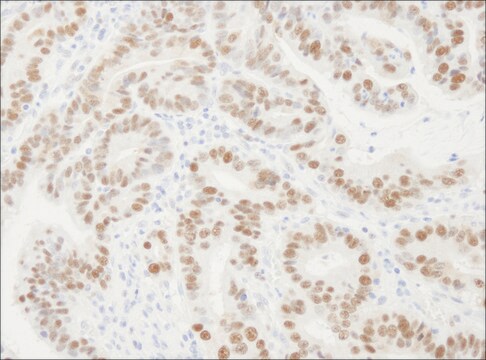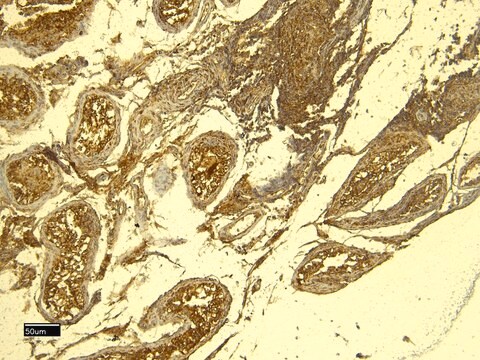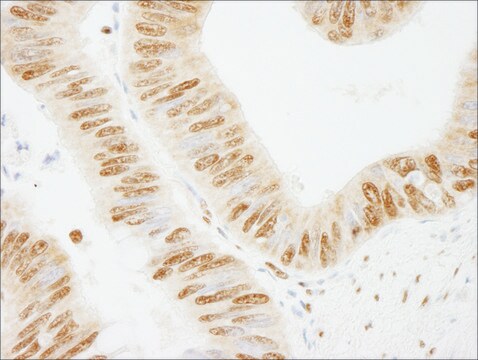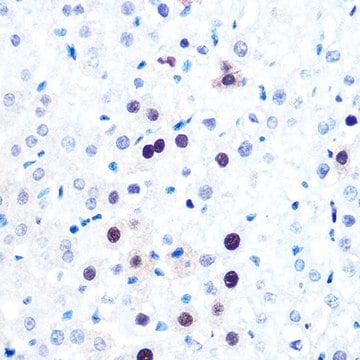PLA0292
Goat anti-RNA Polymerase II Antibody, Affinity Purified
Powered by Bethyl Laboratories, Inc.
Synonym(s):
220kDa, DNA-directed RNA polymerase II largest subunit, DNA-directed RNA polymerase II subunit A, DNA-directed RNA polymerase III largest subunit, POLR2, POLRA, RNA polymerase II 220 kd subunit, RNA polymerase II subunit B1, RNA-directed RNA polymerase II subunit RPB1, RPB1, RPBh1, RPO2, RPOL2, RpIILS, hRPB220, hsRPB1, polymerase (RNA) II (DNA directed) polypeptide A
About This Item
WB
western blot: 1:1,000- 1:5,000
Recommended Products
biological source
goat
Quality Level
antibody form
affinity purified immunoglobulin
antibody product type
primary antibodies
grade
Powered by Bethyl Laboratories, Inc.
species reactivity
human, mouse
concentration
1 mg/mL
technique(s)
immunoprecipitation (IP): 2- 10 μg/mg
western blot: 1:1,000- 1:5,000
accession no.
NP_000928.1
shipped in
wet ice
storage temp.
2-8°C
target post-translational modification
unmodified
Gene Information
human ... POLR2A(5430)
Immunogen
Physical form
Other Notes
Disclaimer
Not finding the right product?
Try our Product Selector Tool.
Storage Class Code
12 - Non Combustible Liquids
WGK
nwg
Flash Point(F)
Not applicable
Flash Point(C)
Not applicable
Choose from one of the most recent versions:
Certificates of Analysis (COA)
Don't see the Right Version?
If you require a particular version, you can look up a specific certificate by the Lot or Batch number.
Already Own This Product?
Find documentation for the products that you have recently purchased in the Document Library.
Our team of scientists has experience in all areas of research including Life Science, Material Science, Chemical Synthesis, Chromatography, Analytical and many others.
Contact Technical Service








